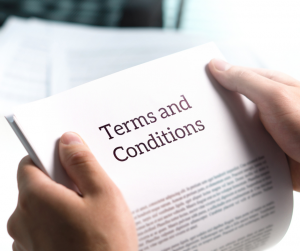Navigating Insurance Lingo: Your Guide to Understanding Key Insurance Terms
Navigating insurance terminology can feel like navigating a confusing maze, but don’t worry! We’re here to guide you through it in a friendly and approachable manner. Whether you’re a seasoned insurance pro or just dipping your toes into the world of coverage, understanding the language used in insurance policies is essential. So, let’s break down some of the most common insurance terms together!
Average Clause:
A provision reducing a valid claim based on the degree of under-insurance.
Capital Additions Clause:
This clause covers alterations or additions to existing premises or newly acquired buildings, as well as additional computer or office equipment.
Conditions:
These are additional provisions in an insurance policy outlining procedures, qualifications, or important stipulations. Conditions may include:
- Conditions precedent of the policy, relieving the insurer of all liability if not observed.
- Conditions precedent to liability, relieving the insurer of liability for a particular claim if not observed.
- Conditions subsequent, which don’t prejudice claim payment but entitle insurers to counterclaim damages.
Data Protection Act:
This covers liability incurred under Sections 22 and 23 of the Data Protection Act 1984, related to personal data. Exclusions include fines, penalties, and the cost of data replacement or rectification.
Debris Removal Clause:
It covers costs of removing debris, dismantling, demolishing, and shoring up.
Definition of Employee:
This term encompasses individuals under contract with the insured, labour masters and their workers, subcontractors, self-employed individuals, students or interns under supervision, and hired or borrowed workers.
Excess:
The portion of loss borne by the insured before insurance coverage applies (also known as a deductible).
Green Card:
An international certificate of insurance for motorists traveling abroad.
Health & Safety at Work Defence Costs:
Covers expenses for defending against criminal proceedings related to breaches of health and safety regulations.
Indemnity:
This principle aims to restore the insured to their pre-loss position as much as possible.
Indemnity Period:
It applies to Business Interruption Insurance, specifying the maximum period during which the policy protects against business interruptions due to damage.
Indemnity to Other Persons:
This extends indemnity to directors, employees, and members of related organizations.
Indemnity to Principal:
Provides indemnity to public or local authorities, with insurers controlling all claims.
Limit of Indemnity:
The maximum amount for which the insurer is liable under the policy.
Long Term Undertaking (LTU):
An agreement offering premium discounts for policy renewal at existing terms for a specified period.
Other Interests:
Parties with vested interests must declare them to insurers in case of loss.
Prevention of Access:
Covers property damage hindering access to premises.
Reinstatement Day One Non-Adjustable:
Initial cost of reinstatement plus an agreed inflation percentage.
Subrogation:
The insurer’s right to step into the insured’s shoes to pursue rights and remedies.
Sum Insured:
The policy’s liability limit.
Unoccupied Premises Warranty:
Conditions for maintaining security and inspecting unoccupied premises.
Warranty:
A condition imposed by the insurer, which, if not met, can discharge the insurer from liability. Types include:
- Express Warranty: Specific undertakings by the insured.
- Implied Warranty: Related to the seaworthiness or legality of an adventure, mainly in marine insurance.
Understanding these key insurance terms puts you in the driver’s seat when it comes to protecting yourself, your loved ones, and your assets. If you ever find yourself unsure about any insurance terminology or need assistance with your policy, don’t hesitate to reach out to your insurance agent. They are there to help you navigate the ins and outs of insurance coverage with confidence.
To discuss a new policy, or current policy please get in touch with us via one of the options below!
Book a call 01730 265500 Contact request form hello@robison.co.uk



